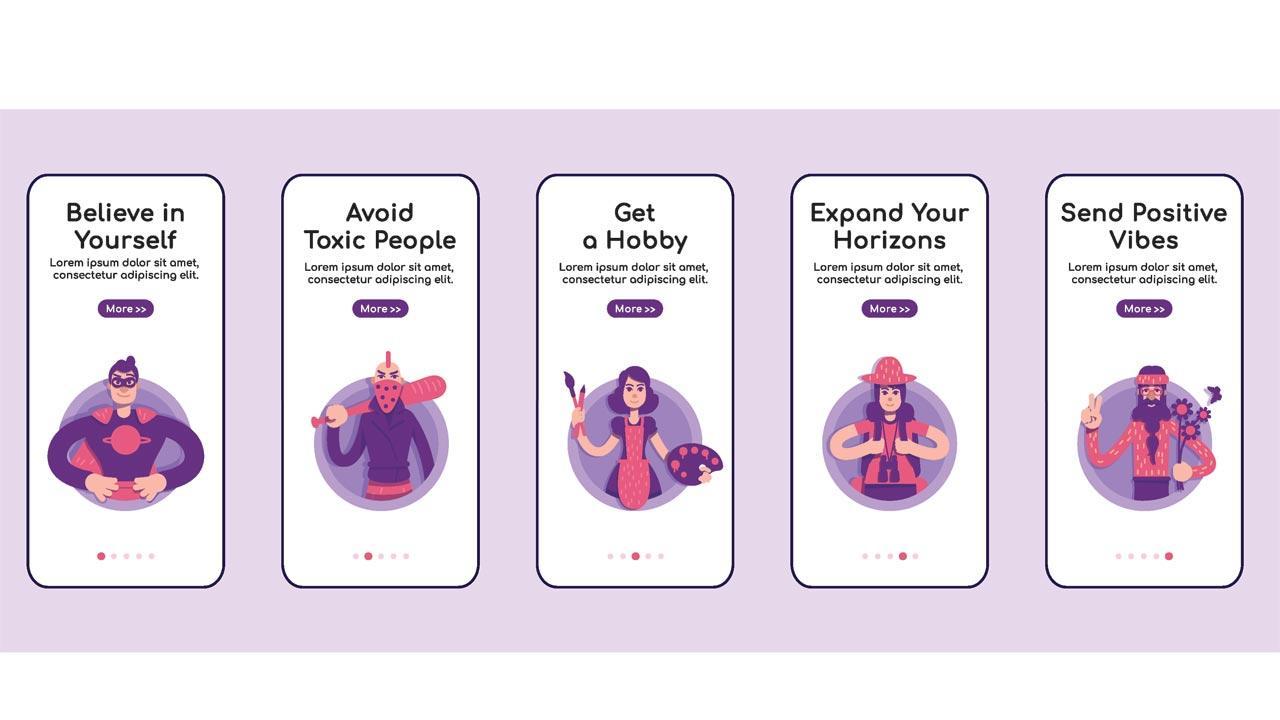In the post-pandemic age of self-love, individuals fed on Instagram mental health awareness are giving up on love, jobs and friendships without a fight

Pic/iStock
Parth Khatau broke up with his best friend a few months ago. You can say, she broke up with him. One day they were thick as thieves, and the next, she was filing a complaint against him with the dormitory dean. “I posted a picture on social media of us, and a Mr Grumpy mug she had got me. She said I had violated her personal space,” says Khatau, 29, who works in the merchandising department of Liverpool football club. This wasn’t exactly the first instance, though. For Khatau, his best friend in London, had reacted unpredictably on a few occasions recently.
“If I got friends over and we used the kitchen, she would say I was not respecting her ‘boundaries’, or hadn’t taken her ‘consent’. I was accused of ‘misusing my authority’ with her.”
Khatau thinks that this terminology was not thanks to a flesh-and-blood therapist she may have been consulting; it was more therapy-like slang she was accessing online. “Eventually, she blocked me everywhere, said she was better off without me. By that logic, isn’t everyone you know going to bring to the table something you don’t like? Are we going to end all relationships?”
 Parth Khatau, Seema Rekhi and Meenakshi Bhanj
Parth Khatau, Seema Rekhi and Meenakshi Bhanj
Khatau has been at the receiving end of what is now popularly known as “therapy-speak”. In a 2021 article, New Yorker writer Katy Weldman first used the term which is also called “Instagram therapy”, and argued, “We ‘just want to name’ a dynamic. We joke about our coping mechanisms, codependent relationships, and avoidant attachment styles. We practice self-care and shun ‘toxic’ acquaintances. We project and decathect; we are triggered, we say wryly, adding that we dislike the word; we catastrophise, ruminate, press on the wound, process. We feel seen and we feel heard, or we feel unseen and we feel unheard, or we feel heard but not listened to, not actively. We diagnose and receive diagnoses: OCD, ADHD, generalised anxiety disorder, depression.”
What Feldman was trying to say was that online content consumers are no longer looking at therapists to make sense of their relationships and the challenges they naturally bring with them. Instead, they are relying on videos that tell them how to break up with friends who “drain you” or are “energy vampires”. It could also be advice they receive in the form of an inspiring quote posted by an influencer, motivation expert or lifestyle coach. Consumers are increasingly internalising Instagram mental health speak, and taking drastic action.
The social networking app has 2.35 billion followers worldwide, with India alone having around 1.4 billion. This means a lot of broken hearts.
Seema Rekhi, cognitive behaviour al therapist and managing director at Gurugram-based Antarmanh, says that she has been trying to raise awareness about the problem. For her, therapy-speak boils down to implementing “quotes without context”. “This is causing problems between not just lovers or friends, but parents and children too. Therapy-speak will say ‘trust your teenager’, but can they really be trusted? It’s easier to let go of your child as you convince yourself that you have found a solution in a quote.” Relationships need work, and a therapist won’t ask a client to cut off a engagement in order to sustain ‘boundaries’. This writer, who has recently faced a challenge with a close friendship, knows this to be the truth. Her therapist advised that she “fix your triggers, and don’t take knee-jerk reactions till six months into therapy”.
“Exactly!” says Rekhi, “A therapist will ask you to know your triggers, and the other person’s, and behave accordingly. Relationships require a lot of work—you need to display empathy, put your ego aside, try and embrace another’s point of view. Sometimes, you must accept that you may have grown emotionally over time, but the other person hasn’t. This calls for greater empathy. You cannot expect them to level up suddenly. But because most people are reluctant to work on this, social media advice seems handy to help them get out of a relationship, and not face the big issue.”
Poonam Singh, 28, lives and works as a design professional in Ghaziabad. She admits that it doesn’t take her too much effort to end a friendship. “My childhood friends didn’t attend my wedding. It made me realise that they don’t harbour space for me in their hearts. I stopped talking to them.” And she admits that Instagram has helped her get through a tough day or two. “Posts show up, and if I relate to them, I take note. I don’t feel like making space for any negativity in my life anymore.”
What Singh is suggesting is what Instagram tells us to do every day—”draw boundaries”, “reject toxicity”. We do this without fully understanding what this means, trivialising or magnifying the problem. Are we then messing with the mental health conversation, misinterpreting professional counselling language and turning an everyday niggle into an emotional catastrophe?
Wellness coach Meenakshi Bhanj says, yes. “When people approach me, they already have a vocabulary ready. They think they are OCD, or they have ADHD. The days when we would have a discussion, sifting through the problem and find a solution together are gone.” The extreme stress on mental health awareness may have its downside too. “People are not working on building [emotional] strength. To use a term like depression casually is problematic. A mood swing is
not depression.”
 Subscribe today by clicking the link and stay updated with the latest news!" Click here!
Subscribe today by clicking the link and stay updated with the latest news!" Click here!










